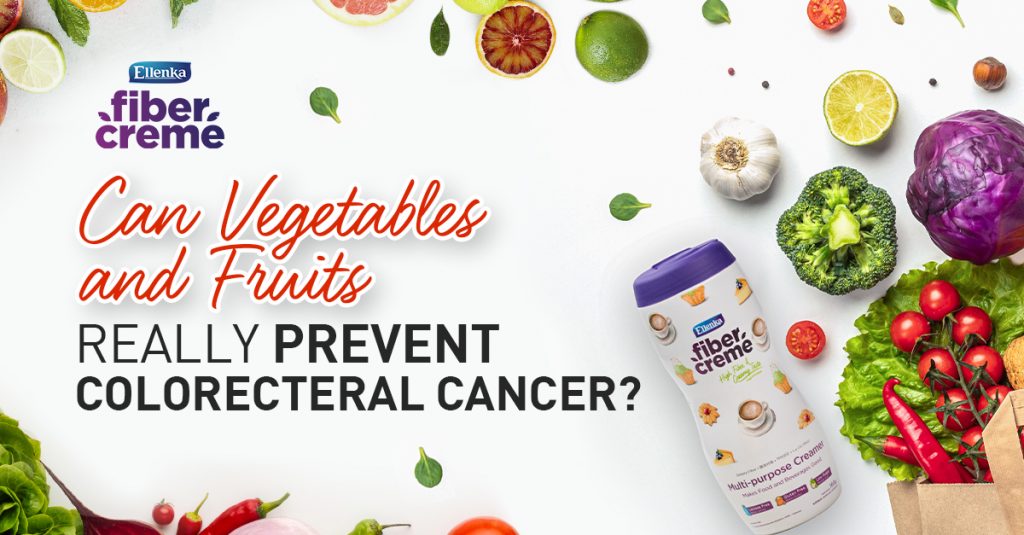Colorectal cancer is always said to be rich people’s problem. This is due to a belief that the wealthier someone is, the worse their diet gets. To save their time and make things easier for them, they tend to trade healthy foods for fast foods which contain little to no nutritions, high calorie, high fat, and low dietary fiber – despite fact that these types of food could lead to cardiovascular diseases, diabetes, and several types of cancer including colorectal cancer that’s mainly caused by the low dietary fiber consumption.

Dietary fiber is actually not that difficult to find. It’s found in abundance in vegetables and fruits. But does eating vegetables and fruit really prevent the occurence of colorectal cancer?
There have been multiple studies showing that vegetables and fruits do have the dietary fiber needed to prevent colorectal cancer. Some of the most recommended veggies and fruits to eat are broccoli, which contains 2.8% of fiber, carrots (3%), red beans (7.9%), apples (2.5%), pears (2.8%), and avocadoes (6.7%). Aside from fiber, these food ingredients are also enriched with antioxidant as well as various vitamins and minerals required by the body to properly function. But then, how does exactly dietary fiber keep us from colorectal cancer? What does it actually do to prevent colorectal cancer?
So, colorectal cancer happens due to cancer cells forming on the inside of the colon. It’s started by carcinogens in the intertestinal wall which may turn into cancer cells under certain conditions, including when we don’t consume enough dietary fiber. How so?
Dietary fiber has the ability to bind water in the digestion, so that the digesta becomes soft and contains more water useful for diluting carcinogens more easily. Dietary fiber additionally bulks up the digesta and consequently cause a large pressure on the intertestinal wall to trigger peristaltic movement. The movement reduces the transit time of digesta in the intertestine, which means it also reduces the risk of the carcinogens get in contact with the intertestinal wall for too long. Shortly, the easier the carcinogens get diluted and the shorter the contact between the substances with the intertestines, the less likely they are to develop into cancer cells.
That isn’t all. Dietary fiber, which the small intestine cannot digest, will be fermented by the bacteria in the colon to produce several gases and short chain fatty acids (SCFAs). Those SCFAs include acetic acid, propionic acid, and butyric acid that have different functions in cancer prevention – like butyric acid can prevent the formation of cancer cells and the formation of abnormal cells (Anonym, 2000). The along with acetic acid and propionic acid, butyric acid can increase the acidity in colon and subsequently neutralizes ammonia substances that plays role in cancer cells development.
So it’s clear that vegetables and fruits do have the ability to prevent colorectal cancer. We may add other fiber rich ingredients too in case we have certain food preference or other conditions that limit out veggies and fruit consumption. Those fiber rich ingredients may come in the form of high fiber drinks, supplement, or multi-purpose creamer FiberCreme. Aside from measured and clearly stated fiber content, FiberCreme is also low in sugar and serves as source of prebiotics.
Anonim, 2000. AGA Technical Review: Impact of Dietary Fiber on Colon Cancer Occurrence. Gastroenterology 118: 1235-1257.



